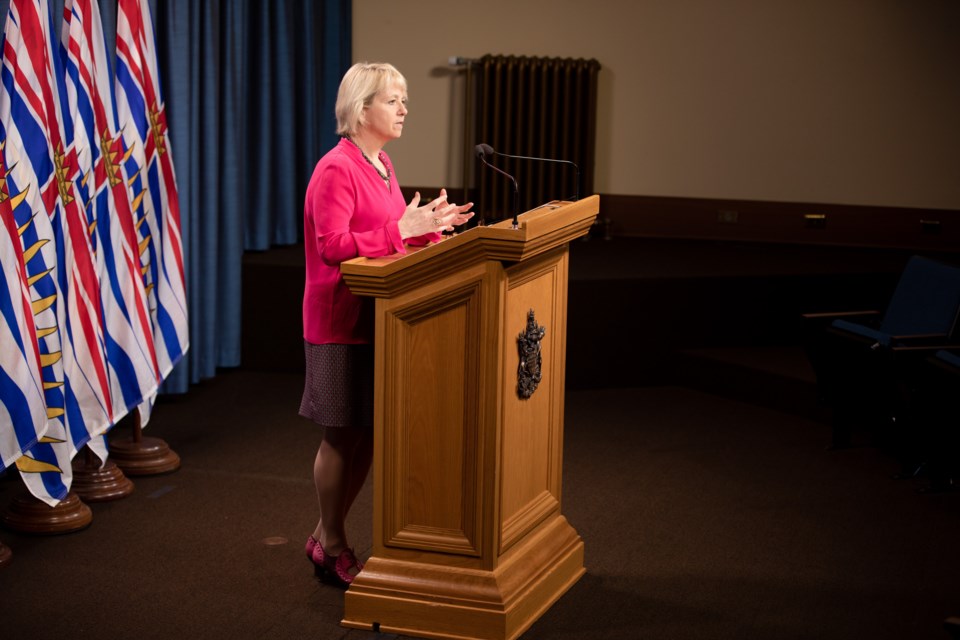Northern Health remains at 64 COVID-19 test-confirmed cases while B.C. now has a total of 2,628 after the latest on-camera update from Dr. Bonnie Henry and Adrian Dix this afternoon (June 4).
Officials say five more cases have been discovered in the past 24 hours.
Nobody is hospitalized throughout the Northern Health Authority. The last test-positive confirmed case was announced on May 30.
Dr. Henry said there are 2,265 recoveries since the virus hit the province, but 201 cases are still active, including 26 hospitalized and six in ICU.
No new deaths have been reported in the past day which keeps B.C.'s total at 166.
Henry and health officials also released new modelling data for hospitalizations, ICU admissions and deaths, cases by age, cases by sex and more.
-No new deaths over the past 24 hours total 166
— Jess Balzer (@jessicajbalzer) June 4, 2020
-26 hospitalized in B.C.
-6 in ICU
-201 active cases in B.C.
-2,265 have recovered from the virus #COVIDー19 #COVID19BC #drbonniehenry #BC #virus #update #coronavirus #northernbc #northernhealth #bcpoli@PGMatters
Women represent 52 per cent of the 2,562 COVID-19 cases identified in B.C. on May 29, men represented almost 60 per cent of the people who were in hospital and more than 63.3 per cent of people who had been admitted to intensive care units. Almost 61 per cent of the people who had died of COVID-19 in B.C. by May, 29 were men.
“We are seeing in B.C. a phenomenon that is being seen in many countries around the world, that even though women are just as likely or even more likely to develop COVID-19, men are more likely to have more severe illness,” Henry said.
She said, without citing any specific data, that the situation may be different in Ontario and Quebec, where the death rate for women is higher, because those provinces have had a higher proportion of their cases in long-term care homes, and women are more numerous in those homes.

(Chart: females slightly outnumber males in the number of total COVID-19 infections, as of May 29 | B.C. government)

(Chart: Males outnumber females when it comes to hospitalizations, intensive care unit admissions and deaths | B.C. government)
Age is the biggest determinant of how severe someone’s bout with COVID-19 will be.
“We have had no deaths in anybody under the age of 40, and we’ve had nobody in the ICU under the age of 20,” Henry said.
More than half of the cases, or 51.6 per cent, have been in people aged 30 through 60. Those people, however, represented less than half of one per cent of the deaths.
There were 128 cases of people who were in their 90s contracting COVID-19, or about five per cent of the total number of cases, as of May 29.
That group of infected people had the highest mortality rate, as 33.6 per cent of those people, or 43, died.
People in their 80s had a similar death rate, at slightly more than 33 per cent, as 70 of the 212 people who contracted COVID-19 and were in their 80s died from the disease.
Children and teens were the most under-represented group, given that only about 1% of the cases were people younger than 10, and two per cent of the cases were people aged 11 through 19.
Only one person aged younger than 20 was hospitalized, and that person did not have to go to an intensive care unit.

(Chart: Middle-aged people are more likely to contract COVID-19 than are older or younger people | B.C. government)

(Chart: Older people are disproportionally harder hit by the COVID-19 virus | B.C. government)
Henry also spent time on June 4 discussing the sources of infection. The first case of the disease was related to the outbreak in Wuhan, followed closely by cases related to the outbreak in Iran. There then came a wave of infections related to the strain that was common in Washington State. Of late, most cases are what Henry called “European-like and Eastern Canadian.”
That strain really started to take off after a dental conference that sparked a large outbreak, Henry said.
“We had at least three slightly different strains, all of them related to Italy and Germany,” she said. “That really let us know that travel-related cases were really coming in and spreading in our community.
- with data and files from Glen Korstrom, Business In Vancouver



